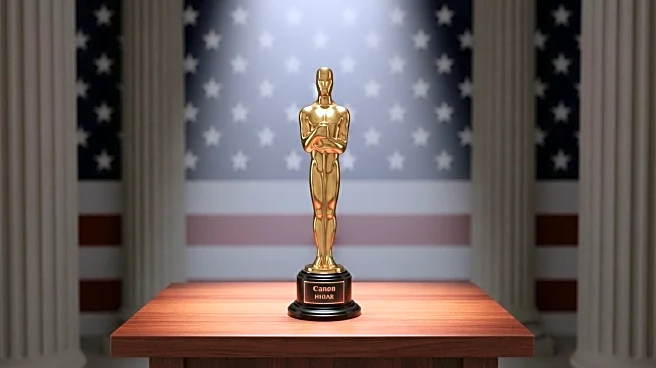What's Happening?
The West Point Association of Graduates has canceled the official award ceremony for actor Tom Hanks, who was set to receive the prestigious Sylvanus Thayer Award. The decision was communicated internally via an email from Mark Bieger, the president and CEO of the association, citing the need to focus on the Army's core mission of preparing cadets to lead, fight, and win. Despite the cancellation of the ceremony, Hanks will still receive the award, which honors his advocacy for veterans and his contributions to military-themed films. The cancellation comes amid broader changes at West Point, including the removal of student clubs for women and minorities following directives from the Trump administration.
Why It's Important?
The cancellation of the ceremony reflects ongoing adjustments at West Point under the Trump administration, which has influenced the institution's approach to diversity and its mission statement. The decision to cancel the ceremony may impact perceptions of West Point's commitment to honoring civilian contributions to military and veteran causes. Hanks, known for his support of Democratic candidates and criticism of President Trump, represents a figure whose recognition might be seen as politically charged. This development could affect West Point's reputation as a non-partisan institution and its relationship with public figures who advocate for veterans.
What's Next?
The cancellation of the ceremony may lead to discussions about the balance between military priorities and civilian honors at West Point. Stakeholders, including alumni and military leaders, might weigh in on the implications of such decisions. The bills introduced by Republican lawmakers to restore 'Duty, Honor, Country' to West Point's mission statement are still in the introduced phase, and their progress could influence future institutional policies. The broader impact on West Point's traditions and its apolitical stance may be scrutinized in the coming months.
Beyond the Headlines
The decision to cancel the ceremony for Hanks highlights the tension between political influences and military traditions at West Point. The institution's historical apolitical stance is challenged by recent administrative decisions, potentially affecting its long-term cultural and ethical dimensions. The move may also reflect broader societal debates about the role of diversity and inclusion in military settings, as well as the influence of political figures on traditionally neutral institutions.










